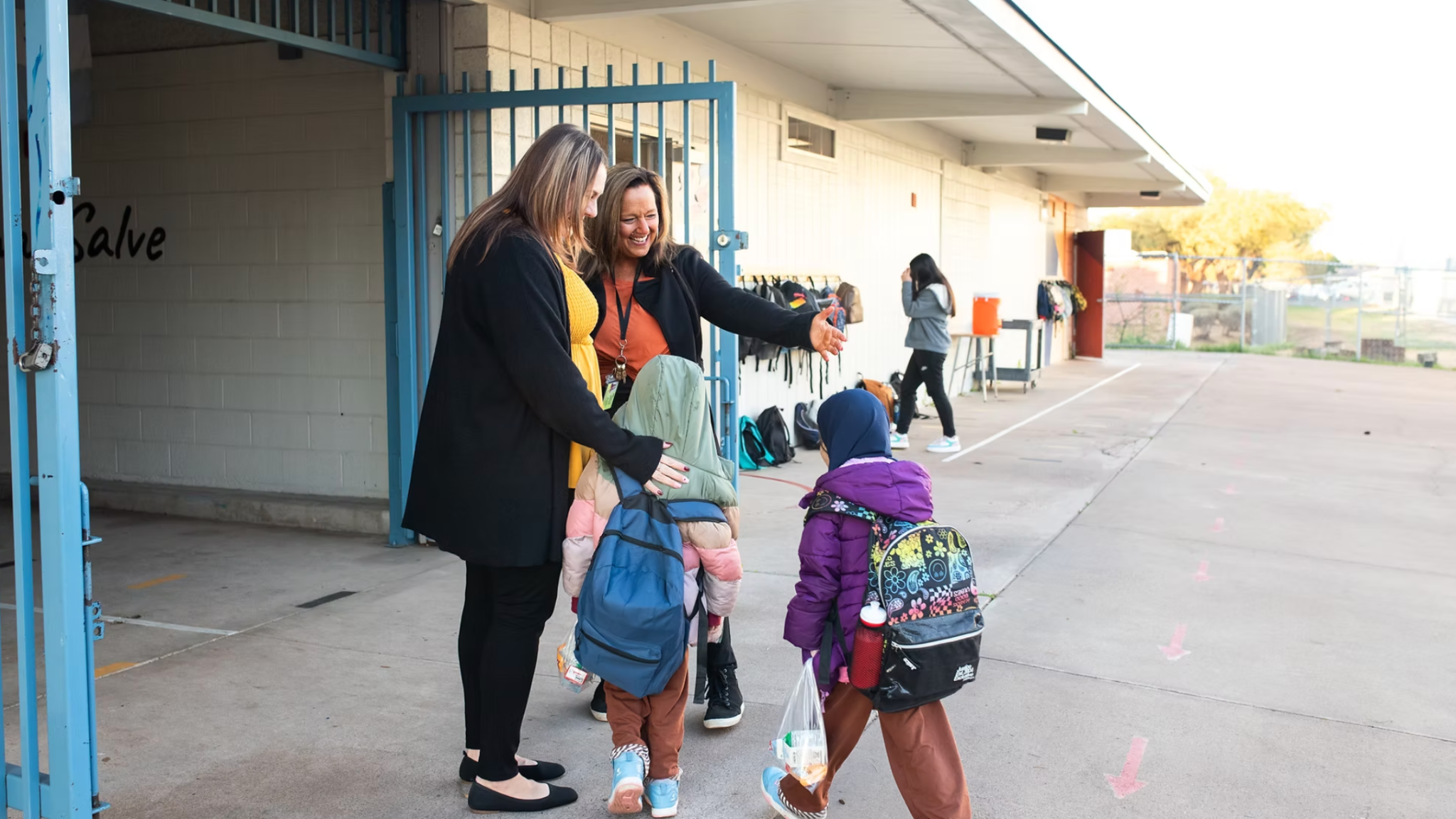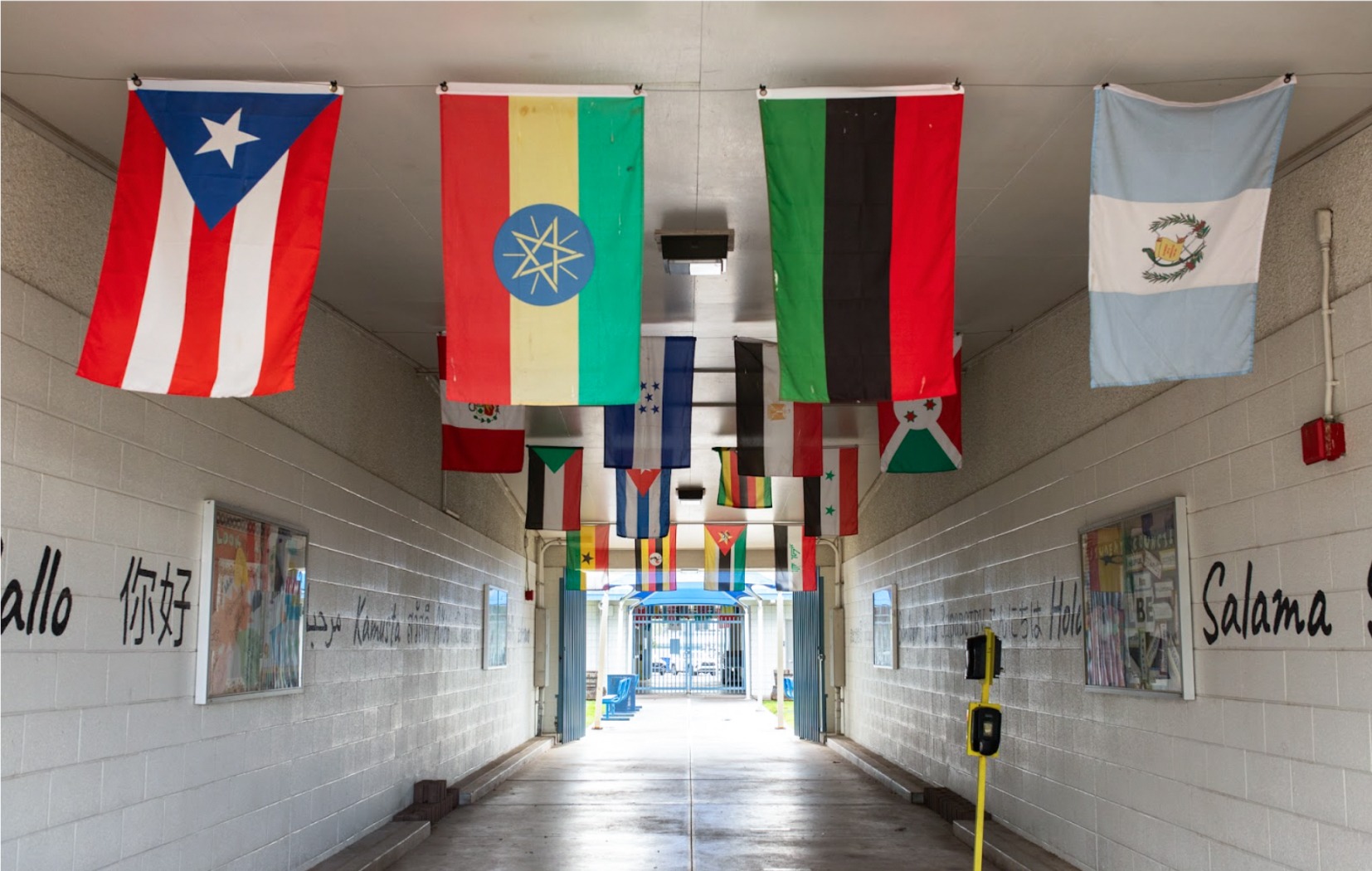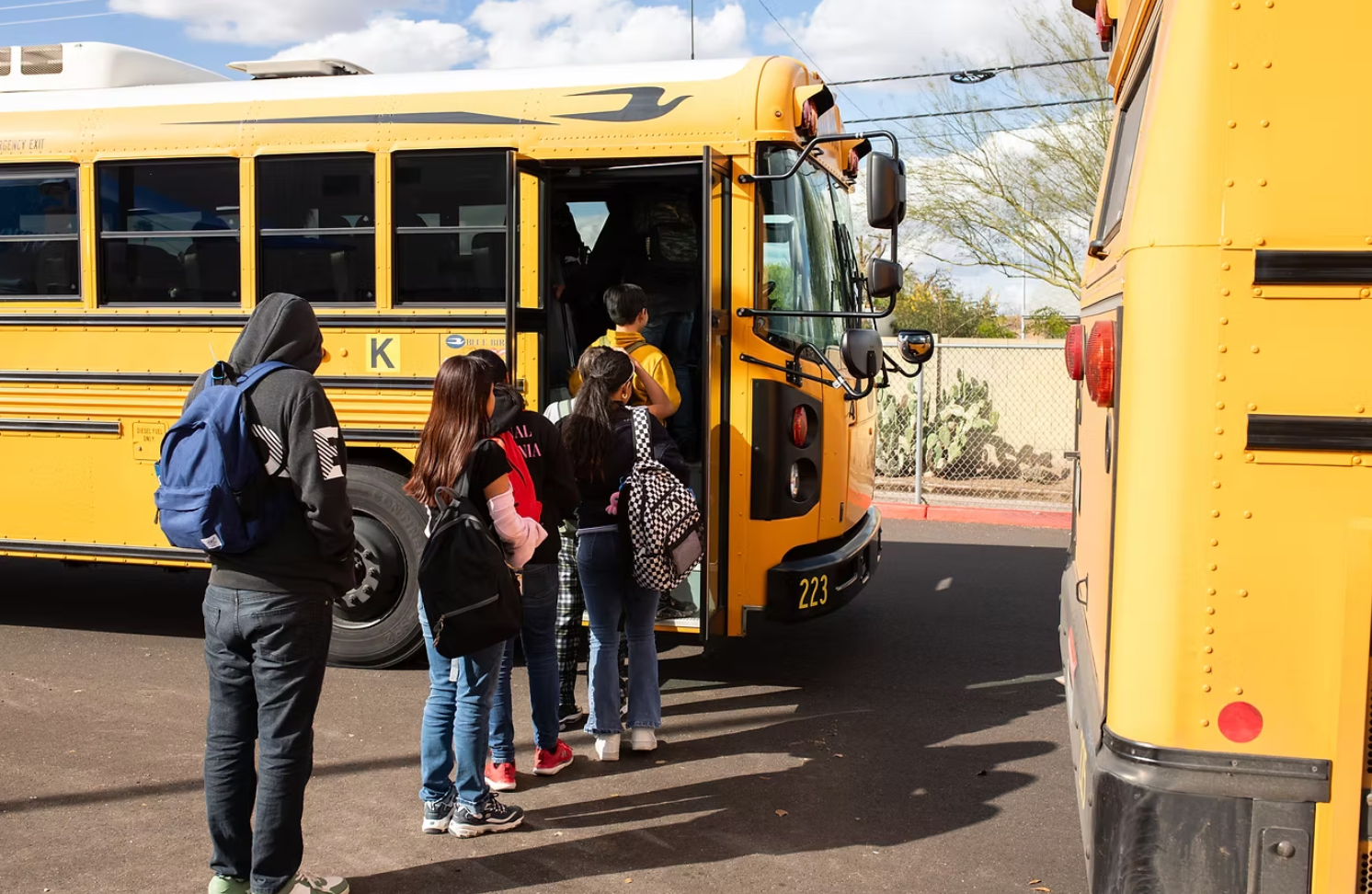'How much do we have to pay?'
By Lily Combs

The UNHCR estimated that every year, an average of 385,000 children are born as refugees while their families await protection. Of the 36.4 million refugees in the world right now, over 14 million are children — some who have only known war, never had a home of their own and never experienced safety.
Valencia Newcomer School is a place designed to welcome these children when they start their journey to freedom in Arizona.
Located in the Alhambra Elementary School District in Phoenix, Valencia is a public K-8 school for newcomers to the U.S. who have little to no prior English education. It is the only newcomer school in the state.
“Most of our students are very thankful to be in school,” Lynette Wegner, the school principal, said. “It's so cute, when we're enrolling, so many parents ask us the same question, ‘How much do we have to pay?’ ‘How much is that going to cost us?’ And when I say, ‘It's free, it's for your children, nothing but being a parent and supporting your child, that's all it's gonna cost you.’ The tears, the hugs, the ‘thank you,’ the ‘God bless you’ are amazing.”

The status of a student at Valencia may range from refugee to immigrant or unaccompanied minor. Some of the children have never attended school before, and for some of their parents, their education was a driving factor for coming to the U.S.
Before Valencia opened six years ago, refugee and immigrant children in the Phoenix area were mostly placed in general education classrooms, where many struggled for years to reclassify out of the English Learner (EL) program. Wegner was an academic coach in the Alhambra district and said she witnessed various teachers struggle to support newcomer students.
“[We] saw kids coloring, a lot of coloring, a lot of tracing, not really being taught, just kind of pushed to the side because [teachers] just didn't know what to do with them,” Wegner said. “A lot of crying, running out of the classroom, a lot of chasing.”
Children who went through strenuous journeys to come to the U.S. did not understand that they were not being taken from their parents forever when they were dropped off on campus. Kids who came from war-torn countries where planes regularly dropped bombs were left in utter fear when aircraft flew over the school, and when school alarms sounded for drills, they experienced nothing but terror.
“Try to experience a lockdown in a public school with kids that have just come from Afghanistan,” Wegner said. “It's just traumatizing.”
In 2017, Wegner was assigned to a task force that studied newcomer schools across the country to find a way to support refugee and immigrant children who were struggling in the district’s public schools. That task force paved the way for Valencia’s opening in 2018. When the school was established, Wegner was placed as its director, a title that later changed to principal.
Since day one, Wegner has made it a priority for students to feel welcomed at school. Every morning, the staff greets students at the gates and at classroom doors with hugs, high fives and smiles as upbeat music plays across campus.
“The expectation of greeting children when they first come on campus, whatever that looks like, it needs to happen,” Wegner said. “Greeting them at the door, letting them know that we are so happy you are here to learn. And so, we want that, we want them to come back, we want them to know that school is a safe and happy place to learn.”
Over 18 countries are represented in all the students who currently attend Valencia, and a blend of 12 languages is spoken by them. Over 350 students have cycled through the school this year and 162 currently attend.
Most of our students are very thankful to be in school."
The school’s goal is to get students ready to attend their zoned public school within one year of arrival. During class time, teachers implement English language learning into lessons and build up to grade-level content in standard school subjects like math and science.
While Valencia works to get students acclimated to the U.S. education system, it also plays a role in introducing them to a new way of life.
“I have kids that if we were to let them, they would wear the same clothes every day because that's all they had,” Priscilla Varela, the school’s counselor and social worker, said. “They are happy to be here, and they don't care what they wear as long as they're here, obtaining their education and getting a meal.”
The students at Valencia come from many different backgrounds. Some may have spent countless days traveling through jungles or deserts trying to come to the U.S., some have lost family members on their journeys and some have lived their entire young lives in refugee camps.
“I had a couple of kiddos from Rwanda, who had to walk like 10 miles one way to get to school,” Varela said. “So for them, getting on the bus is super exciting because they get brought to school.”

Valencia has several resources and programs to support students and families outside of the classroom.
In her role as a counselor and social worker, Varela will often make home visits to families to provide resources and services. She has done visits to deliver food boxes, hygiene kits, bus passes and more.
Students get free breakfast and lunch daily, and once a month, families can pick up fresh fruits and vegetables at the school through a program called Brighter Bites. Valencia also has a free clothing closet filled with shirts, shoes, jackets, diapers, hygiene products and more that students and their families can access during school hours.
“I want every one of our families to know that school is not just for their children's education, but it's a safe place to go to get help,” Wegner said. “We have a lot of families that just come here needing help.”
Post a comment